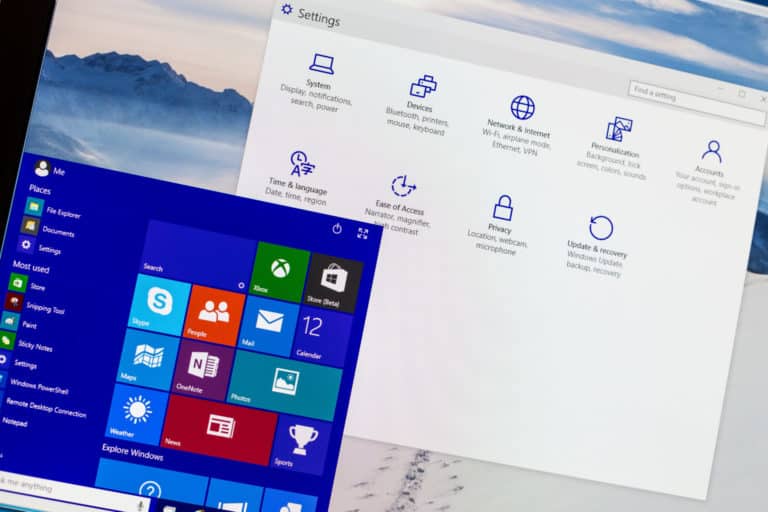Innovations Microsoft Location Awareness Brought to Azure IOT App Development
As the rising tide of the Internet of Things (IoT) technology gradually filters into enterprise ecosystems, one area that has remained virtually unexplored is location and geospatial awareness. Mobility is a key component of many business structures, as well as a key variable of customer behavior. And with the rising rate of mobility comes a greater need for software solutions with location capabilities.
Azure cloud service now boasts an innovative set of APIs which allow enterprises to obtain location-based information from customers. The frameworks allow Azure cloud service customers to imbue their applications with mapping, traffic, geocoding and location search functionalities.
This supercharges the potential of the utility with which IoT can furnish enterprise ecosystems. Not only can companies harness IoT to gain control over their physical assets via the cloud in order to minimize energy usage, they can now mine location-oriented information, notwithstanding the degree of mobility which their business operations must deal with.
The Azure Location Based Services platform was introduced to the Azure services users in December 2017. The location awareness platform puts Microsoft in the front-foot of the enterprise IoT market.

How the Azure Location Based Services Works
Azure Location Based Services can be used in combination with other Microsoft cloud-based IoT services to build apps for tracking field assets and gathering routing and traffic information. The location awareness cloud-based IoT services comprises 5 REST-based services:
- The Render service, which allows for the construction of vector graphics-based maps of locations in over 200 regions around the globe. Users can easily zoom in and out of these maps.
- The Routing service, which gives directions for navigation between locations, together with routing suggestions based on the level of congestion in routes, and specified arrival times. It can even suggest “the most energy efficient routes” for electric cars.
- The Search service, which processes queries about landmarks, and other specific locations on the map. It also allows an Azure developer to infuse an app with capabilities for referencing another location to find a point on the map.
- The Time Zone service, which shows the time in a particular location.
- The Traffic service, which gathers information about the condition of traffic-flow in locations around the globe. This service is powered by TomTom, a colossal map maker provider. TomTom provides real-time information about situations in roads in 55 regions across the globe.
In addition to these services, the location awareness platform provides what is dubbed “Azure Map Control,” a JavaScript control that allows an Azure developer to add a select set of data to vector- and raster-graphics map images. The platform effectively caters to privacy and personal data security. Also, since the platform is cloud-based, it supports immense scalability.
Business Models that Can Benefit the Most from This Platform
Azure Location Based Services is one of the aces that Microsoft is pushing to become the most highly sought after brand for the enterprise IoT. The platform offers a wide range of location-oriented APIs, maps, traffic monitoring, and geocoding frameworks for the speedy and efficient creation of a location-sensitive Azure development.
The platform offers a one-stop solution for all location capability needs, including the need to keep tabs on mobility, field and mobile assets, and other geospatial variables. From independent software vendors (ISV) to logistics companies, there is a slew of businesses that can benefit immensely from location-aware apps.
But the business models that can benefit the most are those in constant need to track assets, as well as those operating in the transportation industry. In general, the cloud-based capability to track assets can help any business save costs of energy and power consumption. A location-aware app can also prove highly instrumental to the operations of businesses in the manufacturing, retail, and automotive industries, etc.

Some Leading Companies Using Azure Location Based Services
Microsoft’s cloud-based IoT services are endeared by hundreds of thousands of brands who’ve partnered with the tech giant. These companies are drawn from a wide range of industries, from smart city industries to automobiles and logistics. The following is a run-down of companies that have deployed the Azure Location Based Services:
TomTom
The long-standing mapmaker is Microsoft’s first official partner on the location awareness platform. It uses the Azure API suites for its digital map. TomTom’s Azure development harnesses community inputs to ensure accuracy in the output of the app.
Esri
An industry leader in enterprise mapping and geographic information system (GIS) technology, Esri is deploying the location awareness Azure services to provide location data management and digital mapping solutions.
Cubic Telecom
The Ireland-based IoT and automotive telecommunications giant, is adopting the platform for the creation of an Azure Application development that collects data to rank their charging station placements on the basis of their effectiveness.
Fathym
The US-based heavyweight IoT solutions company is deploying the platform to create an Azure development that allows for the visualization of road weather conditions on digital maps.
ICONIQ
In addition to using the Azure cloud service to implement vehicle diagnostics and analytics as well as predictive maintenance, the Chinese electric vehicle manufacturer is deploying the platform to create location-aware apps.
Cubic Transportation
This is a smart-city company that uses Azure cloud services to provide all-inclusive travel information for transport companies using any mode of transportation.
Delphi
This company co-opts the Azure location awareness platform to create integrated autonomous driving solutions.
Otonomo
In a bid to build a vehicle data marketplace that is the first of its kind, this company is deploying Azure cloud services to facilitate the acquisition and analyses of vehicle data.
Setbacks for the Azure Location Based Services
It’s very normal for users to be wary of an app that keeps track of their locations. In a bid to accommodate customers over security and privacy concerns, Microsoft has decided to put customers in total control of their location data generated through the location awareness platform.
This is in line with the customer privacy and data security culture that Microsoft has assiduously cultivated throughout its history. The Azure management team boasts that Azure’s collection of compliance certifications completely eclipses those of any other cloud vendor in the world.
Conclusion
As the enterprise IoT continues to deliver tremendously on its potentials, many Azure developers are looking to ease the day-to-day operations of businesses that revolve around mobility by building highly efficient location sensitive apps. Not only can a top-notch Azure developer create location-aware apps to minimize the energy and power consumption required to track mobile assets, they can also imbue apps with location awareness to mine, manage and analyze location-based data. Be sure to Contact Us when you start your project and we’ll work with you to make your project just the way you need it to be.



